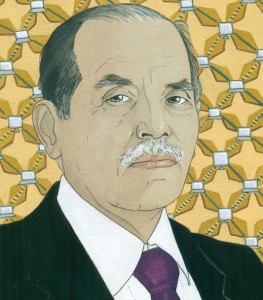
The year was 1969. F. C. Kohli had just computerized control of the power grid serving the city of Mumbai (then known as Bombay.) It had been an impressive feat for him as general manager of Tata Electric, a sign he was well on his way to leading the company. But the Tata Group, India’s largest conglomerate, had other plans for Kohli. He was asked to help get Tata Consultancy Services, its fledgling information technology services company, off the ground as its general manager. “TCS was up, but it wasn’t running,” quips Kohli.
The task ahead of him was daunting: he would have to computerize operations for any of Tata’s 50-plus companies that were interested and then drum up business from outside clients, even though the domestic market was far from ripe for computerization.
At the time, there were only a handful of computers in all of India. The socialist government imposed severe restrictions—and steep tariffs—on the import of new mainframes, which were seen as pointless luxuries that threatened to displace human workers. No private company had even attempted such a purchase. Who would the new company write software for, using what? But in 1974, when the director of TCS died, Kohli succeeded him and went on to shape it into a $400 million venture over the next two decades.
Last year, the Institute of Electrical and Electronics Engineers (IEEE) awarded Kohli the Founders Medal in recognition of his contributions to the development of the IT industry in India. In a video shown at the award ceremony, Ratan Tata, CEO of the Tata Group, called him the “father of Indian outsourcing.”When he started his career, India was unknown as a source of software. Today, its IT industry employs close to 2.8 million people and is expected to have surpassed $100 billion in revenue in 2012.